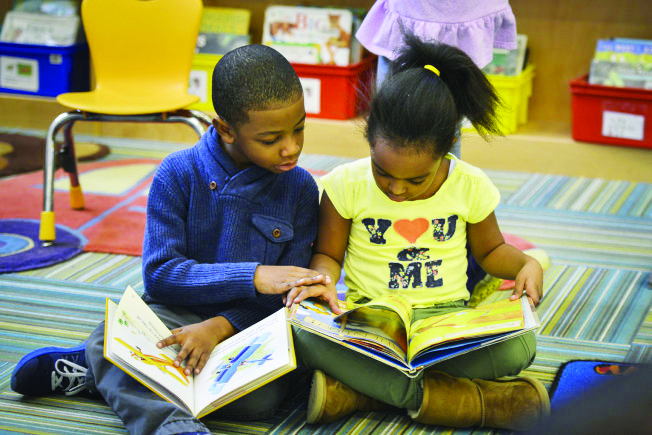Every parent intuitively knows it’s a good thing to teach their child how to share and play well with others, and how to deal with emotions like anger and sadness, but do most of us have any sense of just how important these so-called social and emotional skills can be to our child’s long-term success?
A new study, which is a comprehensive 20-year examination of 800 children from kindergarten through their mid-20s published Thursday in the American Journal of Public Health, found a link between a child’s social skills in kindergarten and how well they were doing in early adulthood.
Children who were helpful and shared in kindergarten were more likely to have graduated college and have a full-time job at age 25. The children who had problems resolving conflicts, sharing, cooperating and listening as kindergartners were less likely to have finished high school and college, and were more likely to have substance abuse problems and run-ins with the law.
The findings are “huge” when it comes to the thinking about how brain health impacts a person’s overall health, said Kristin Schubert, program director for the Robert Wood Johnson Foundation, which funded the research.
“It’s like a paradigm shift around what it means to be mentally well at an early age and how that dictates how life goes for you later on,” she said.
Emotional skills can be taught
To conduct the study, researchers from Penn State University and Duke University looked at teacher evaluations of kindergartners’ social competency skills, which were conducted in 1991.
Teachers evaluated the kids based on factors such as whether they listened to others, shared materials, resolved problems with their peers and were helpful. Each student was then given an overall score to rate their positive skills and behavior, with zero representing the lowest level and four for students who demonstrated the highest level of social skills and behavior.
Researchers then analyzed what happened to the children in young adulthood, taking a look at whether they completed high school and college and held a full-time job, and whether they had any criminal justice, substance abuse or mental problems.
For every one-point increase in a child’s social competency score in kindergarten, they were twice as likely to obtain a college degree, and 46 percent more likely to have a full-time job by age 25.
For every one-point decrease in a child’s social skill score in kindergarten, he or she had a 67 percent higher chance of having been arrested in early adulthood, a 52 percent higher rate of binge drinking and an 82 percent higher chance of being in or on a waiting list for public housing.
“We were surprised but not completely surprised” by the findings, said Damon Jones of Penn State University, the lead researcher for the study.
‘Far-reaching’ implications
The implications of the study’s findings are far-reaching, said Schubert of the Robert Wood Johnson Foundation.
First, there’s a message to educators that social and emotional learning can be just as important as cognitive skills.
“Traditionally, we’re focused much more on academic achievement and more and more we’re realizing through many studies that academic achievement is only one part of making somebody successful,” said Penn State’s Jones.
“If we’re sticking with the schools analogy, it takes the discipline, it takes the motivation, the attitude, the ability to work with others and work with adults to be able to succeed in schools and attain degrees.”
Business leaders understand the importance of emotional intelligence, Schubert said. In some ways, they grasped this before many who study early childhood, she said.
“They know they want to hire people who can play well with others because they know it actually impacts the bottom line,” she said. – CNN



Comments are closed.